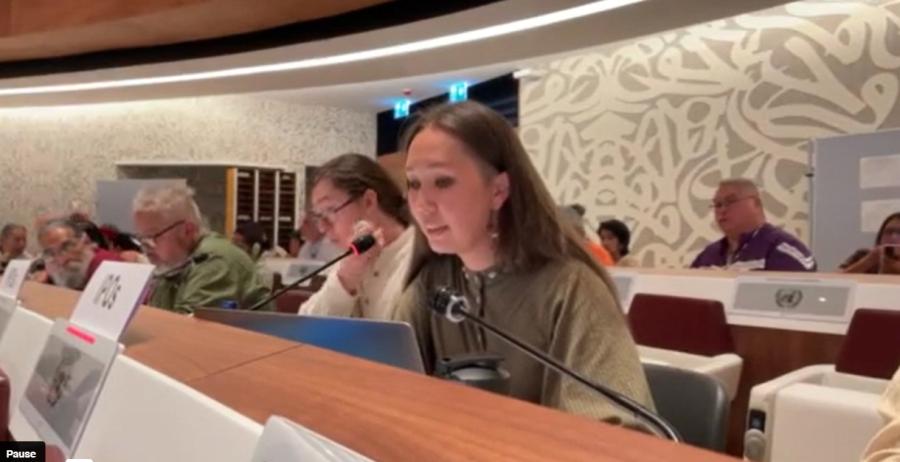Celebrate some good news with our campaign partners on Sakhalin Island, Russia!
Since January 2004, Global Response has participated in an international campaign to stop Shell Oil company from endangering the Pacific Gray Whale and the wild salmon fishery of Sakhalin Island. Indigenous communities have been protesting on Sakhalin for many months.
Now a Russian court has rejected Shell's Sakhalin-II Environmental Review. See more information below, from Pacific Environment.
*****************************************************
Russian Court Rejects Shell's Sakhalin-II Environmental Review
- Groups expect government to halt illegal gas plant construction
- Decision casts further doubt on project's financial viability, Pacific Rim LNG supplies.
San Francisco, CA – Citing environmental concerns, a Russian court upheld a decision rejecting an environmental impact review (EIR) by Royal Dutch/Shell's Sakhalin Energy Investment Corporation (SEIC) [1]. Groups including Friends of the Earth, Greenpeace Russia, Pacific Environment, Rainforest Action Network, Global Response and Sakhalin Environment Watch expect Russia's Environmental Inspection Service (Rosprirodnadzor) to halt illegal construction of the LNG plant until its EIR is approved by rule of law.
SEIC has already begun dumping 2 million cubic meters of dredging waste into Aniva Bay, polluting delicate fisheries for crab, scallop, krill, and sole. The bay provides habitat for 25 percent of the salmon caught on Sakhalin Island, where fish are a crucial part of the local subsistence economy.
The Yuzhno-Sakhalinsk court's decision follows a series of international protests throughout the summer. International environmental groups and local indigenous communities have voiced serious concerns about the threat Sakhalin-II poses for the last known population of critically endangered Western Gray Whales as well as to the island's local fishing economy and traditional culture. Activists on Sakhalin Island and in Moscow, Zurich and New York have called on public and private finance institutions to sever their ties with the highly controversial project and asked Credit Suisse First Boston to withdraw as SEIC's financial advisor.
Environmental groups point to last month's announcement by the European Bank for Reconstruction and Development that Sakhalin-II's EIR is 'unfit for purpose,' as well as the project's significant violations of the Equator Principles, as evidence that both public and private finance institutions should freeze financing for the project.
Court decision background
The court decision stems from a lawsuit brought by Sakhalin Environment Watch and the citizens of Sakhalin against Russia's Ministry of Natural Resources (MNR) and Sakhalin Energy Investment Company (SEIC).
The suit challenges that the LNG jetty construction in Aniva Bay did not pass the obligatory environmental impact assessment procedure. The plaintiffs contend that the operation of dredging and the dumping of dredging waste, in connection with the LNG jetty construction, have a large negative impact on the marine environment of Aniva Bay and on the local population. On Tuesday, an appeals court upheld this decision and recognized that the environmental impact review for this portion of the Sakhalin-II project is invalid.
Without the jetty and pier, the LNG terminal cannot be operational, and construction will be severely hindered. The LNG terminal, if completed, is said by Shell to be the largest in the world, and is expected to export LNG from Sakhalin to markets throughout Asia and California.
The court decision comes on the heels of Shell's announcement that the cost of the project has ballooned from an original billion to billion, leading to concern among financial analysts about the project's viability. Shell also announced that deliveries of LNG would be delayed from 2007 to 2008. This court decision may cause additional delays in LNG deliveries to prospective buyers in Japan, Taiwan, and California.
Quotes:
Dmitry Lisitsyn, Sakhalin Environment Watch:'The court decision confirms that Shell's scofflaw attitude towards Sakhalin's fisheries won't stand.'
Doug Norlen, Pacific Environment: 'Shell's callous disregard for Sakhalin's fisheries deserved a cold slap in the face. Let's hope it wakes up and changes its reckless ways'
"We're not surprised that environmental and social concerns have created yet another major setback for Sakhalin II," said Michelle Chan-Fishel of BankTrack, which has urged both Equator and non-Equator banks to not finance the deal. "Over the last year, BankTrack has repeatedly warned dozens of banks about the risks associated with this environmentally and socially harmful project. Even from a self-interested perspective, banks would be putting too much of their own capital on the line: their money, their reputations, and the credibility of the Equator Principles."
'Shell's dishonesty about the real risks of this project and the costly delays that are resulting are clear signals that banks should steer clear of Sakhalin II,' said Dan Firger, Global Finance Campaigner at Rainforest Action Network. 'Oil is not a platform for a healthy economy. Credit Suisse First Boston and the rest of the banking sector should be funding safe, secure, and sustainable sources of energy.'
- For more information, visit Pacific Environment: http://pacificenvironment.org/section.php?id=135
- High resolution photos of the dredging operation and damage to underwater ecosystem available by request.
--------------------------------------------------------------------------------
[1] SEIC is operated by Royal Dutch/Shell and includes Mitsubishi and Mitsui.



